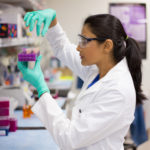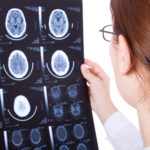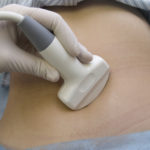
Autistic women face barriers to safe and supportive maternity care
Childbirth is often described as one of life’s most profound experiences, but for many, it can be fraught with anxiety, pain and trauma. Autism is a lifelong neurotype, which affects around 3% of people. It is linked to differences in communication and sensory processing. Women have historically been under diagnosed with autism, diagnosed at an … Continue reading Autistic women face barriers to safe and supportive maternity care

Scientists develop coral inspired material to revolutionise bone repair
Researchers at Swansea University have developed a revolutionary bone graft substitute inspired by coral which not only promotes faster healing but dissolves naturally in the body after the repair is complete. This groundbreaking research, led by Dr Zhidao Xia from Swansea University Medical School in collaboration with colleagues from the Faculty of Science and Engineering … Continue reading Scientists develop coral inspired material to revolutionise bone repair

We have the technology to turn ultra processed food from foe to friend
Writing in The Conversation, David Benton, Professor Emeritus (Human & Health Sciences), Medicine Health and Life Science at Swansea University says “Ultra-processed foods are the latest nutritional villains, associated with several diseases of the modern world, from obesity to heart disease. However, many nutritionists question whether the term “ultra processed” does any more than create … Continue reading We have the technology to turn ultra processed food from foe to friend

Menopause can increase your likelihood of developing heart disease, type 2 diabetes and hypertension — but exercise can help lower risk
Menopause affects all women differently, and each person’s experience is unique. While some women view menopause as a new lease of life, others can experience a host of new symptoms and changes to their body. Many of these changes can have an effect on health, too, even increasing a woman’s risk of developing certain health … Continue reading Menopause can increase your likelihood of developing heart disease, type 2 diabetes and hypertension — but exercise can help lower risk

Experts provide further proof of the role testosterone plays in preventing severe Covid
A new study has revealed important information about how a patient’s testosterone level can help protect them from severe Covid-19. Previous research involving Swansea University investigated how sex hormones are likely to be important determinants of Covid-19 severity. Now the university reports digit ratio expert Professor John Manning, of the Applied Sports, Technology, Exercise and … Continue reading Experts provide further proof of the role testosterone plays in preventing severe Covid

How do autistic people experience maternity care?
Dr Aimee Grant, Senior Lecturer in Public Health at Swansea University, has been inspired by her experience of Autism and maternity care to research the topic, how it could improve Autistic adults’ lives, and make healthcare more accessible. After she was diagnosed as Autistic in 2019, Aimee Grant had an ectopic pregnancy. She had to … Continue reading How do autistic people experience maternity care?

Psoriasis drug shows promise for treating childhood diabetes
A drug that is currently used for the treatment of psoriasis has been found to be effective in treating the early stages of type 1 diabetes in children and adolescents according to a new clinical trial led by Cardiff University with the assistance of Swansea Trials Unit (STU) and the Diabetes Research Group Laboratory at … Continue reading Psoriasis drug shows promise for treating childhood diabetes

Newly developed “smart patch” could be used to detect Alzheimer’s
A leading Swansea University scientist has developed a new smart patch that can detect proinflammatory biomarkers of neurodegenerative diseases such as Parkinson’s and Alzheimer’s through the use of microneedle technology. Swansea University says this breakthrough in the advancement of transdermal capability would mean smart patches could be used to detect certain biomarkers within skin interstitial … Continue reading Newly developed “smart patch” could be used to detect Alzheimer’s

Research finds autistic mothers are not getting the help they need to breastfeed
Swansea University research has found autistic mothers are not getting the help they need to breastfeed. Kat Williams, a mother of two said that despite really wanting to breastfeed both her children, struggling with it left her feeling like a failure. She said “I think I was coming across as a bad patient. “The worst … Continue reading Research finds autistic mothers are not getting the help they need to breastfeed

Could a person’s finger length be a clue to how ill they might get with Covid-19?
Fingers could point to a link between low testosterone and Covid hospitalisations. It is widely recognised that a longer ring finger is a marker of higher levels of testosterone prenatally, whereas a longer index finger is a marker of higher levels of oestrogen. Generally, men have longer ring fingers, whereas women have longer index fingers. … Continue reading Could a person’s finger length be a clue to how ill they might get with Covid-19?








